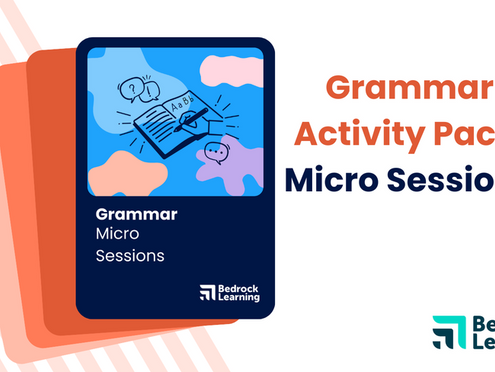It’s worth noting that here we’re talking about anxiety in the context of exam nerves but of course anxiety disorders can affect every aspect of a learner’s life. If you suspect that one of your learners is experiencing anxiety in a more pervasive manner, organisations like Young Minds and The Mental Health Foundation have lots of guidance and resources on hand.
6 top tips for helping your learners to manage exam anxiety
1. Talk about it
One of the most effective ways to reduce exam anxiety is to talk about it. Encourage your learners to share their worries and concerns with you, and reassure them that it is normal to feel anxious before exams. By acknowledging their feelings, you can help them to feel more relaxed and confident.
2. Practise deep breathing exercises
These can be very effective in reducing anxiety and promoting relaxation, even in exam settings. For example, the box breathing technique involves inhaling for four seconds, holding for four seconds, exhaling for four seconds and pausing for four seconds before repeating the process, and can heighten concentration as well as relieving stress.
3. Teach learners the 3-3-3 technique
The 3-3-3 technique involves looking around and noticing three objects that you can see, listening for 3 sounds that you can hear, and gently moving 3 parts of your body. Putting this simple technique into the context of exams is fairly easy - learners might see their pen, the white board and a mark on the wall, they might hear the squeak of an invigilator’s shoes, the rustle of paper or their peers coughing, and they can then wiggle their toes, flex their fingers and stretch their necks.
4. Be flexible
Our Director of Education (and ex Head of English), Olivia Sumpter, noted the importance of flexibility within revision sessions, saying, “While you’re helping your learners to revise, it’s important to remember that every learner is different, and what works for one may not work for another. I found that being flexible in my approach, and adapting my teaching methods to suit individual needs helped learners to feel supported and valued, as well as giving them the freedom to revise using techniques that they feel work for them.”
5. Don't add to the pressure
It is important to avoid adding to the pressure that learners may already be feeling. Avoid setting unrealistic expectations, and instead focus on encouraging learners to do their best. Praise their efforts and progress, and help them to see their achievements in a positive light.
6. Keep things in perspective
Finally, it is important to keep things in perspective. Whilst exams are important, they are not the be-all and end-all. Remind learners that their worth is not determined by their exam results, and that there are many paths to success in life. Encourage them to do their best, but also to enjoy the process of learning and growing.
So, whilst exam anxiety can be a significant challenge for learners, as teachers, we can help them to overcome it, supporting our learners to perform at their best and achieve success.




